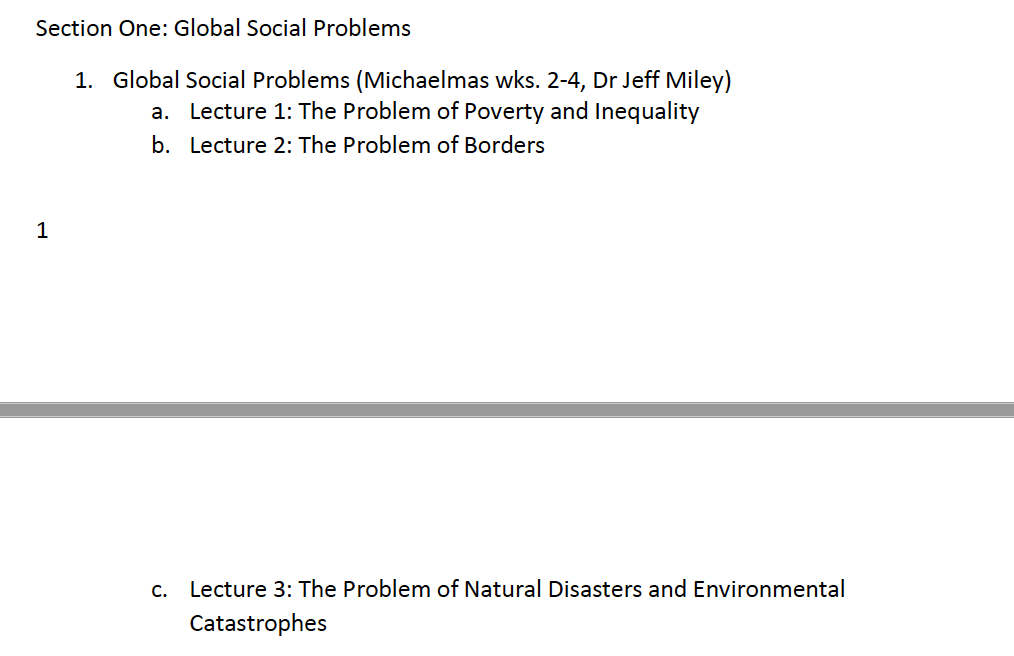
Think class is important? Students say the Sociology department doesn’t
Second- and third-year Sociology now have zero specific papers or primary topics on class issues
As faculties unveil the 2020-21 paper choices across the School of Humanities and Social Sciences, a few HSPS students who study single-track Sociology have begun to wonder whatever happened to all that stuff about class.
Despite economic inequality being integral to the origins of the discipline, the Sociology faculty have removed the Part IB Paper 12 paper on “Social Problems in Modern Britain”, a great deal of which focussed on the U.K. class system.
This news comes after last year’s decision to remove “The Problem of Poverty and Inequality” from the second-year SOC3 paper, replacing it with a section in ecology despite there already being an option to study environmental sociology in the exact same subsection. This has left the only class content in a small subsection – one of only 19 taught topics – in SOC1 and on a theoretical basis in (optional) sections of SOC2.

2017 course guide for SOC3 – “Lecture 1” has since been replaced [Credit: Sociology Faculty, University of Cambridge]

Credit: Arran Parry-Davies, via Twitter
Indeed, this is particularly noticeable in contrast to other top Russell Group universities; Manchester, Durham, Warwick, and Bath all have a paper specifically dedicated to class or economic inequality issues – Manchester has one in each year.
Ryan Bogle, a first-year HSPS student at Girton, has felt significantly disheartened by the decision. “Given that Social Class is one of the most marginalising factors not just in the country, but specifically Cambridge University, it’s saddening but yet unsurprising that the HSPS department has axed class-specific papers for Part II students. I came to Cambridge hoping to learn more about Class as a Class Act student and student of Adjustment, but yet again Cambridge has succeeded in disappointing on the issue of Class-based education and its representation for Class Act students”.
One second-year HSPS student, who asked not to be named, said that the decision has led to them considering switching to the Historical Tripos. “The main reason I applied for HSPS was because I was interested in studying class and its dynamics. Now that I have no opportunity to study it whatsoever in the Social Sciences is absolutely shocking.” Another anonymous Homerton student commented, “I think the faculty are more interested in trendsetting than they are in covering the basics. They have amazing papers on Race and Colonialism which I’d like to take, but given the complete lack of class interests I’m very tempted to switch Tripos”.
Harrison Jennings, Chair of Cambridge University Labour Club added “it is disappointing…In the aftermath of the 2016 EU Referendum, and in the middle of a pandemic demonstrating clearly that fortunes are divergent for the haves and have nots, I find it baffling that the sociology department have chosen to duplicate already-extant papers and in doing so, scrap any focus on class as worthy of study in its own right.”
Several senior representatives of the Faculty were contacted for comment. Director of Undergraduate Education, Dr Ella McPherson pointed out that “students with a particular interest in economic inequality and its intersections can pursue this beyond the many dimensions offered across the curriculum with their own independent research. This could be through the long essays in the second year and the dissertation in the third year, supported by expert supervisors”.
Head of Department, Prof Sarah Franklin, added an explanation for the study of class: “In the past it tended to be the case that subjects such as race, gender, poverty and class tended to be studied separately […] However, the alternative is to study how they intersect and reinforce one another”.
Although highly praising intersectional critiques as the foundation for studying inequality, undergraduate faculty representative Arran Parry-Davies was left unimpressed by the comments.
“The faculty response states that we don’t need to teach class separately,” he added, “but then teaches race and gender as separate papers…we can’t be expected to study the nexus of race, gender, and class if we don’t treat them as equally important modes of study – which the sociology faculty is currently failing to achieve.”









































